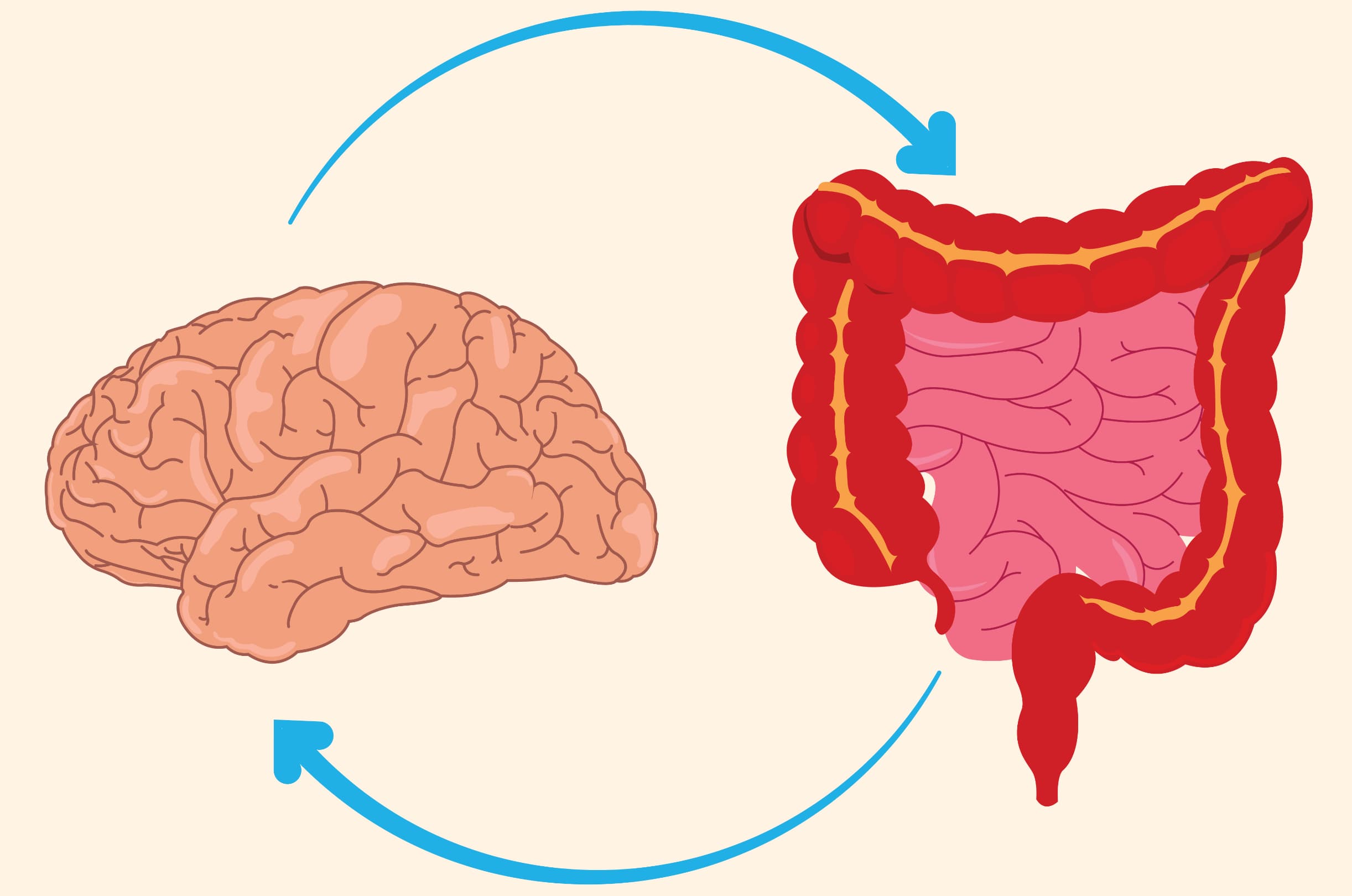“Second brain”: How the gut and brain communicate
Did you know that your gut and brain have a direct communication system? Discover why the gut is called your “second brain” — and how it affects everything from mood to focus.

Introduction: When the stomach talks to the brain -- and vice versa
We've all felt it — butterflies in the stomach before an important meeting or the worry that settles in the stomach during stress.
It's no coincidence.
There is a real and active interaction between our intestines and our brain, a that communication occurs constantly.
Scientists often call it “gut-brain axis” — the gut-brain axis — and at its center stands what is sometimes called our secondo braino, or other brain.
It's not poetry, it's biology.
In this article, we'll go over how the gut and brain communicate, why it's critical to your mental well-being — and how you can support that connection with proper nutrition.
What does “second brain” really mean?
The intestine contains over 100 million nerve cells.
This makes it the second largest nervous system in the body, after the brain.
It is called the enteric nervous system and is so independent that it is sometimes described as a “second brain”.
The intestine does not only control digestion
The enteric nervous system regulates more than just bowel movements. It affects:
- Hormone secretion
- Neurotransmitters, such as serotonin
- Immune system
- Inflammatory state
- Stresssvar
And perhaps most importantly, it sends mais signalen naar de brain' aan de anderen.
Gut-brain axis — the line of communication of the intestine to the brain
Communication between the intestine and the brain occurs through:
- Vagus nerve — the longest nerve in the body that connects the gut directly to the brain
- Hormonal signals — affecting appetite, sleep and stress
- Immunologische responsie — via the intestinal protective barrier
- Metabolites from the intestinal flora — e.g. short-chain fatty acids that affect brain function
The role of the intestinal flora for your mental balance
Possibly the most fascinating thing about the gut-brain axis is microbiome — that is, the environment of bacteria in the gut.
They are not just passive passengers.
They produce neurotransmitters like GABA, dopamine and serotonin — making them active players in your mental well-being.
Serotonin — the “happy” hormone
Up to 90% of the body's serotonin is produced in the intestine.
It affects mood, sleep and emotion regulation. If the intestinal flora is in imbalance, serotonin levels can be negatively affected.
Inflammation of the intestine = impact on the brain
Prolonged imbalance in the intestine can create low-grade inflammation.
This inflammation can travel up to the brain and affect cognition, focus and emotional instability.
Signs Your Gut-Brain Connection Needs Support
- You feel tired, even after sleep
- You often experience bloated stomach, gas, or constipation
- You feel depressed for no apparent reason
- You have trouble focusing or feeling “brained”
- You become sensitive to stress or feel “out of balance”
These are not definitive diagnoses -- but signals worth listening to.
How to strengthen your “second brain” — 5 concrete tips
1. Eat foods as the intestinal flora
Focus on fiber (prebiotics) and fermented foods such as sauerkraut, kimchi and kefir. They nourish good bacteria.
2. Add probiotics to your routine
Relivo contiene Bacillus coagulans, a hardy lactic acid bacterium that reaches the gut alive—unlike many others.
3. Prioritize sleep and tranquility
Sleep is restorative for both the gut and brain. The vagus nerve is activated by deep breathing and calm evening routines.
4. Avoid inflammatory diet
Reduces sugar, processed foods and omega-6 excess. Instead, choose anti-inflammatory sources such as berries, rose hips and omega-3.
5. Provide the body with the right micronutrients
Magnesium, zinc, B vitamins and vitamin D are all central to the intestinal barrier, nervous system and neurotransmitters. Relivo contains all of these — in forms the body recognizes.
Relivo and the gut-brain axis — a natural support in everyday life
Relivo is more than a supplement.
It is a well-thought-out combination of plant extracts, adaptogens, vitamins, minerals and probiotics — designed to support both your body and your inner well-being.
Med Bacillus coagulans for the intestinal flora, Ashwagandha for the stress response and bioactive micronutrients such as Magnesium bisglycinate, B12 and Vitaminum D3, Relivo helps to balance the body's signaling system in depth.
And that's exactly what the gut-brain connection is all about -- Poise.
Sumário
The gut and the brain are constantly in conversation. How we feel mentally affects our digestion -- and how we eat and live affects our mental clarity, emotions, and focus.
Backing the gut is therefore not just a matter of digestion — it is a way of building calm, energy and balance. Start with small steps. Possibly a scoop of Relivo a day. Your other brain will thank you.











